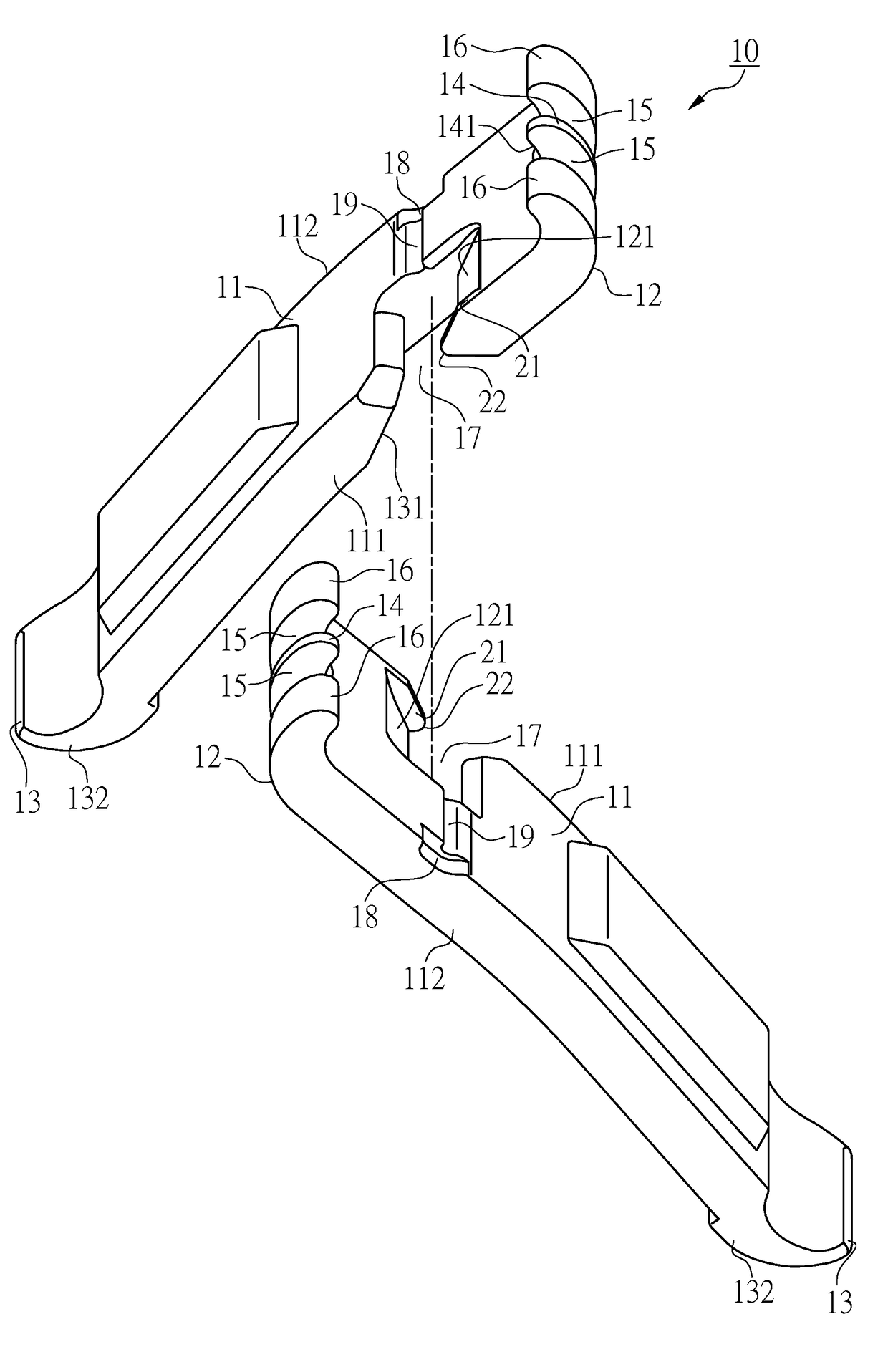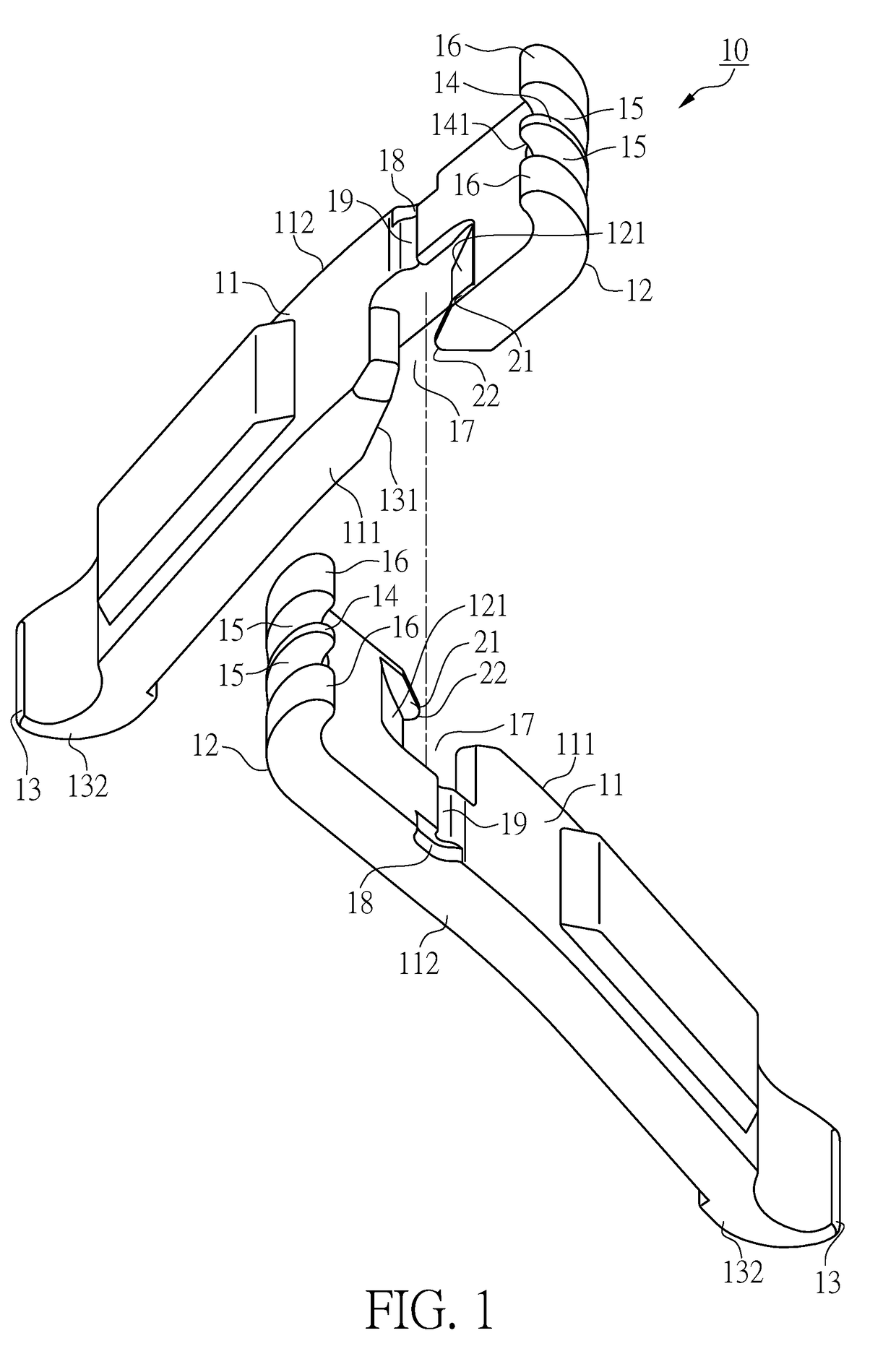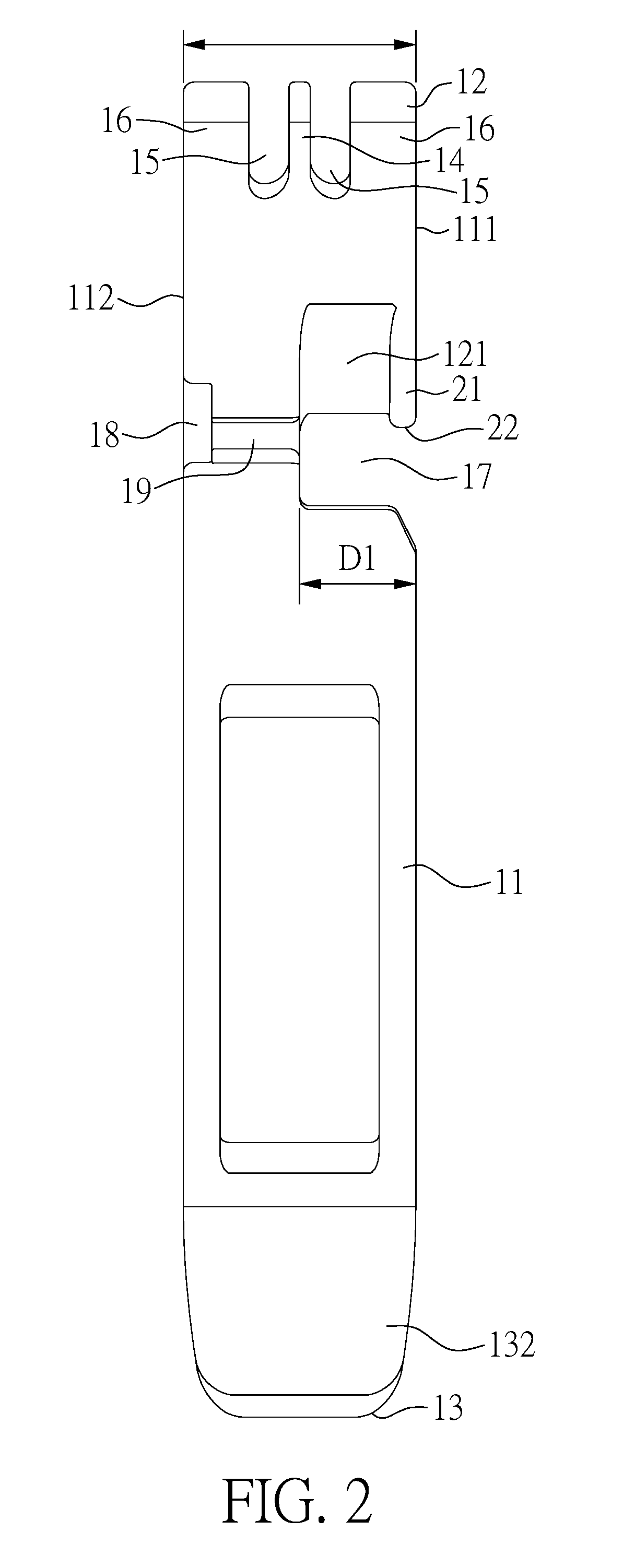Chain tool
a chain tool and tool body technology, applied in the direction of metal chainmaking tools, chain/belt transmission, metal chains, etc., can solve the problems of disadvantageous single-handed operation, inability to carry a large number of tools, bulky tools such as pliers, etc., and achieve the effect of being operated single-handedly
- Summary
- Abstract
- Description
- Claims
- Application Information
AI Technical Summary
Benefits of technology
Problems solved by technology
Method used
Image
Examples
second embodiment
[0043]When the chain tool in the second embodiment is used to disconnect the chain 30, referring to FIG. 11, the two members 41 are brought close to each other, with the first hook portion 44 and the second hook portion 45 of each member 41 facing their counterparts of the other member 41. Next, the two members 41 are engaged with each other through the openings 47 so as to be pivoted with respect to each other. The second hook portion 45 of one member 41 is then placed into the space between the pair of inner plates 32 located on one outer side of the quick link plates 33 and is pressed against one of the two rollers 35 corresponding to the quick link plates 33. Similarly, the second hook portion 45 of the other member 41 is placed into the space between the pair of inner plates 32 located on the other outer side of the quick link plates 33 and is pressed against the other of the two rollers 35 corresponding to the quick link plates 33. After that, a force is applied to the two mem...
first embodiment
[0045]As stated above, during the connecting process of the chain 30, the first hook portion 44 of one member 41 is placed in between the pair of quick link plates 33 and pressed against one of the two rollers 35 corresponding to the quick link plates 33, and the second hook portion 45 of the other member 41 is placed in between the pair of inner plates 32 located on one outer side of the quick link plates 33 and pressed against another roller 35. As the first hook portion 44 and the second hook portion 45 in use are close to each other while connecting the chain 30, the lateral component force actually provided by the two members 41 to move the two rollers 35 away from each other is so large as to not only produce the same effect as the first embodiment, but also make it possible to generate a sufficiently large lateral component force by applying a relatively small force when trying to moving the two rollers 35 away from each other. Thus, the present invention saves time and effor...
PUM
 Login to View More
Login to View More Abstract
Description
Claims
Application Information
 Login to View More
Login to View More - R&D
- Intellectual Property
- Life Sciences
- Materials
- Tech Scout
- Unparalleled Data Quality
- Higher Quality Content
- 60% Fewer Hallucinations
Browse by: Latest US Patents, China's latest patents, Technical Efficacy Thesaurus, Application Domain, Technology Topic, Popular Technical Reports.
© 2025 PatSnap. All rights reserved.Legal|Privacy policy|Modern Slavery Act Transparency Statement|Sitemap|About US| Contact US: help@patsnap.com



